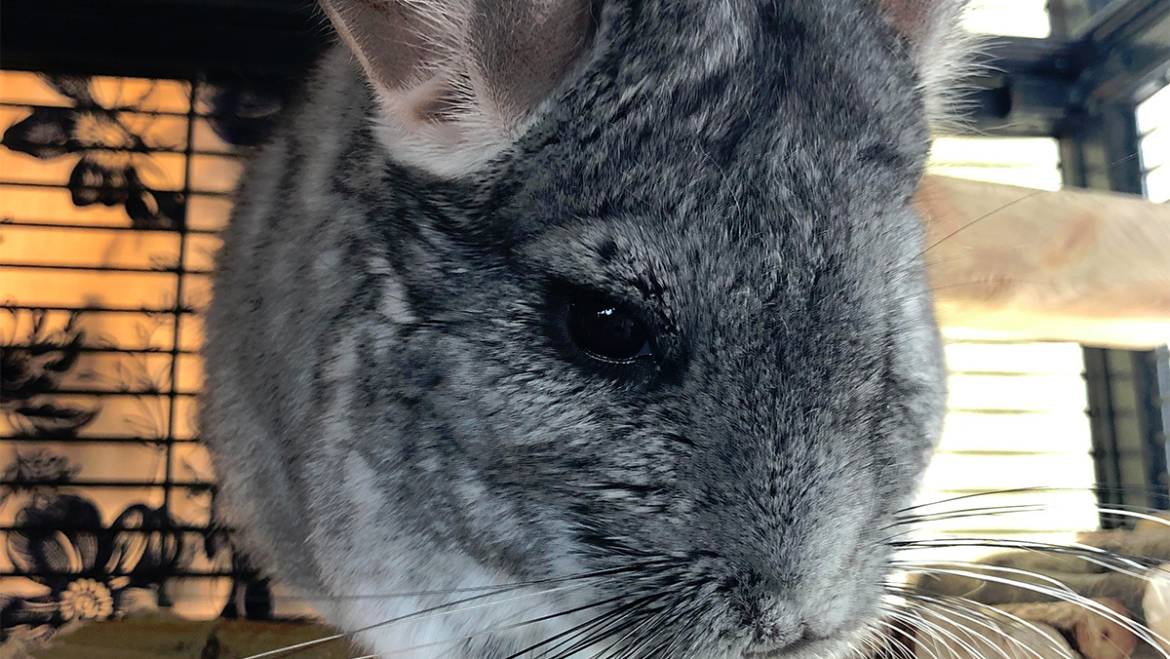Chinchillas are lovely, cuddly creatures that can become wonderful companions to their owners. However, despite their cute appearance, they are prone to depression. When a chinchilla is depressed, it may stop eating, lose weight, and become lethargic. In severe cases, depression can even be fatal. In this article, we will explore the causes, symptoms, and cures for depression in chinchillas.
Causes of Chinchilla Depression
Like humans, chinchillas can become depressed for a variety of reasons. Here are some of the most common causes:
– Lack of Socialization
Chinchillas are social animals that thrive on companionship. When they are kept alone for extended periods, they can become lonely and depressed. Owners should always strive to provide their chinchillas with plenty of socialization time. This can be done by playing with them, talking to them, and providing them with plenty of toys and other forms of entertainment.
– Poor Living Conditions
Chinchillas need specific living conditions to thrive. If their living space is too small, dirty, or lacks proper ventilation, they can become depressed. Owners should ensure that their chinchilla’s cage is clean, spacious, and well-ventilated.
– Lack of Stimulation
Chinchillas are active creatures that need plenty of mental stimulation to stay happy and healthy. When they are bored, they can become depressed. Owners should provide their chinchillas with plenty of toys and opportunities to explore their environment.
– Health Issues
Depression can also be a symptom of an underlying health issue. If a chinchilla is suffering from an illness or injury, it may become depressed. Owners should monitor their chinchilla’s health closely and seek veterinary care if necessary.
Symptoms of Depression in Chinchillas
Depression can manifest itself in different ways in chinchillas. Here are some of the most common symptoms to look out for:
- Lack of Appetite: One of the most common symptoms of depression in chinchillas is a lack of appetite. Depressed chinchillas may stop eating or only eat a small amount of food.
- Lethargy: Depressed chinchillas may also become lethargic. They may spend most of their time sleeping or lying down and may not show much interest in their surroundings.
- Weight Loss: Due to the lack of appetite and activity, depressed chinchillas may lose weight. This can be dangerous, especially for young or weak chinchillas.
- Hiding: Chinchillas are naturally curious creatures that love to explore their surroundings. When they are depressed, they may spend most of their time hiding in their cage.
Curing a Depressed Chinchilla
If you suspect that your chinchilla is depressed, there are several steps you can take to help them. Here are some of the most effective treatments:
– Socialization
If your chinchilla is lonely, providing them with more socialization time can be beneficial. You can do this by playing with them, talking to them, and providing them with toys and other forms of entertainment.
– Environment
If your chinchilla’s living conditions are poor, you may need to make some changes. Ensure that their cage is clean, spacious, and well-ventilated. Provide them with plenty of toys and opportunities to explore their surroundings.
– Healthcare
If your chinchilla is suffering from an illness or injury, seeking veterinary care can be crucial. Depression can be a symptom of an underlying health issue, and a veterinarian can help diagnose and treat any problems.
– Diet
Ensuring that your chinchilla is getting a balanced diet is also important. A poor diet can lead to health issues that can exacerbate depression. Chinchillas need a diet that is high in fiber and low in fat. They should also have access to fresh water at all times.
– Medication
In severe cases, medication may be necessary to treat depression in chinchillas. Antidepressants can be prescribed by a veterinarian to help improve the chinchilla’s mood and increase their appetite. However, medication should always be a last resort, and other treatments should be tried first.
Preventing Depression in Chinchillas
Prevention is always better than cure. Here are some steps you can take to prevent your chinchilla from becoming depressed:
- Provide Adequate Socialization: Providing your chinchilla with plenty of socialization time is crucial. If you are unable to spend time with them, consider getting another chinchilla to keep them company.
- Maintain Proper Living Conditions: Chinchillas need specific living conditions to thrive. Ensure that their cage is clean, spacious, and well-ventilated. Provide them with plenty of toys and opportunities to explore their environment.
- Provide Mental Stimulation: Chinchillas are active creatures that need plenty of mental stimulation to stay happy and healthy. Provide them with plenty of toys and opportunities to explore their environment.
- Monitor Your Chinchilla’s Health: Monitoring your chinchilla’s health is crucial to catching any health issues early on. Regular check-ups with a veterinarian can help ensure that your chinchilla is healthy.
Depression can be a serious issue for chinchillas. If left untreated, it can lead to severe health problems and even death. However, with proper care and attention, depression in chinchillas can be treated and prevented. Providing your chinchilla with a clean, spacious living environment, adequate socialization time, and mental stimulation can go a long way in preventing depression. If you suspect that your chinchilla is depressed, seek veterinary care as soon as possible.







